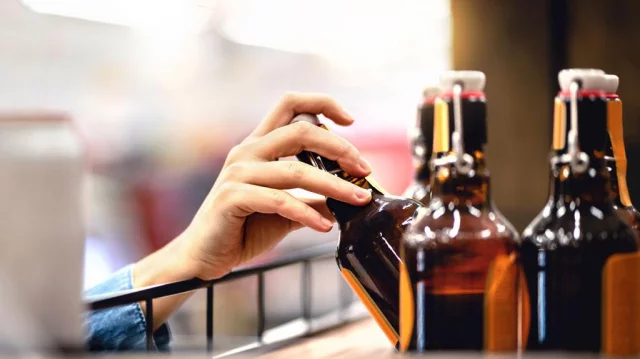In recent weeks, authorities in Kuwait launched what appears to be the deadliest crackdown yet on illicit factories producing toxic drinks. News emerged when dozens fell sick—and tragically, some died—after consuming beverages made under unsanitary conditions with harmful substances. The toxic drinks illicit factories Kuwait scenario is shaking public confidence and raising urgent concerns about food safety regulation in the country.
2. What Happened: From Factory to Fatal Drinks
Here’s the grim unfolding of events:
- Illegal factories were discovered operating in hidden locations—warehouses, backrooms, and makeshift facilities.
- These places lacked any standard processing equipment, clean water, or quality control.
- Reports indicate that contaminated ingredients—like industrial chemicals, unauthorized additives, or spoiled bases—were used to mask inferior or dangerous liquid mixtures.
- The toxic drinks were bottled, labeled vaguely, and distributed through informal markets: street vendors, small shops, even some cafes.
- As cases of poisoning rose, hospitals flagged a pattern. Multiple patients had symptoms of chemical toxicity: nausea, kidney failure, respiratory issues.
- Health authorities began testing samples and found alarming toxins. The lethal connection between toxic drinks illicit factories Kuwait was confirmed, prompting swift action.
3. The Crackdown: Government Response
The Kuwaiti government reacted decisively:
- Raids and Shutdowns
- Security and health inspectors raided suspected sites, seizing equipment and shutting down operations.
- Several dozen arrests were made, including factory operators and supply chain accomplices.
- Public Warnings
- Officials issued immediate advisories: avoid unverified drinks, buy only from licensed retailers, report suspicious cases.
- Testing & Recall
- Authorities launched mass testing of beverage samples in markets.
- Any suspect beverages were recalled, and safe alternatives promoted.
- Legal Action and Penalties
- Tough penalties were announced: heavy fines, jail sentences, and possible permanent bans on manufacturing for offenders.
- Support for Victims
- The government provided medical care, compensation, and support services to those affected by the toxic drinks illicit factories Kuwait fiasco.
- Hospitals were equipped with antidotes and treatment protocols for chemical poisoning.
4. Why It Matters: Public Health and Trust at Stake
This scandal isn’t just about contaminated drinks—it touches on deeper issues:
- Safety Standards Lapse
The existence of illicit factories signals a failure in oversight. Gaps in regulation or enforcement allowed these operations to flourish. - Public Trust Undermined
Consumers who assumed store-bought drinks were safe are now terrified—this shatters confidence in everyday products. - Vulnerable Populations at Risk
Street vendors and corner shops often serve low-income communities. These populations are most likely to face harm from toxic drinks illicit factories Kuwait because they rely on cheaper sources. - Economic Impacts
Reputable beverage producers may suffer reputation damage. Exports could be affected if concerns about Kuwait’s food safety spread internationally.
5. What’s Being Done to Prevent a Repeat
Here are the proactive measures underway:
- Tightened Inspections
Regulators are increasing unannounced checks at factories, warehouses, and distribution points. - Licensing and Traceability
New rules will require transparent supply chains, batch numbers on drinks, and traceability from production to sale. - Public Education Campaigns
Awareness drives—via social media, posters, TV—are teaching people how to spot legitimate products and report suspicious ones. - Vendor Registration Programs
Informal sellers are being invited to register officially; training will be provided to ensure product safety and accountability. - Cross-Border Collaboration
Authorities are coordinating with regional counterparts to stop cross-border trafficking of toxic drinks and dismantle syndicates.
These steps aim to dismantle the toxic drinks illicit factories Kuwait problem, but vigilance is ongoing.
6. Voices from the Ground
(Note: fictional examples for narrative clarity.)
- A Rescued Consumer:
“I thought I was just buying a cheap juice,” says Layla, who suffered severe vomiting after drinking the tainted beverage. “I never imagined it could be toxic.” - Health Official:
“We’ve never seen contamination on this scale,” stated Dr. Hussain, a lead toxicologist. “This isn’t just food safety—it’s criminal negligence.” - Vendor’s View:
Small shop owner Farid says, “We only sell what we get from our supplier. We trusted them. Now we’re scared too.”

7. Lessons Learned and Ongoing Challenges
7.1 Strengthen Regulatory Systems
Stricter laws are only effective if enforced. Kuwait must ensure agencies have resources to conduct regular inspections, testing, and swift intervention.
7.2 Building Consumer Awareness
Empowering consumers to identify licensed products and encouraging them to report anomalies builds community resilience.
7.3 Addressing Root Economic Drivers
Illicit operations often thrive because of high demand for cheap goods. Economic solutions—such as subsidies for safe products or incentives for legitimate small producers—can reduce the allure of illicit supply.
7.4 Regional Intelligence Sharing
Criminal networks may span borders. Collaborative law enforcement efforts with Gulf neighbors are vital to disrupt supply chains of illicit drinks.
8. What You Can Do—Consumer Tips
To stay safe amidst the aftermath:
- Buy only from trusted, licensed retailers.
- Check labels for batch numbers, manufacturer info, and expiry dates.
- Be wary of unusually cheap or unbranded drinks.
- Look for official seals or QR codes that verify authenticity.
- Report any suspicious product or adverse reaction to health authorities immediately.
9. Looking Ahead: A New Era for Food Safety
The toxic drinks illicit factories Kuwait catastrophe could mark a turning point for Kuwaiti food safety. If the government maintains stricter enforcement, promotes transparency, and builds public trust, this crisis may ultimately lead to stronger protections and safer products for everyone.
Consumers will remember this as a wake-up call. Legal manufacturers, vendors, and regulators now share a clearer, urgent responsibility to keep care and safety at the core of production. This tragedy—while harrowing—offers a path toward higher standards and safer consumption in the future.
Do follow on: Instagram
Read More: Reshaping Youth: 7 Positive Ways Sports Transform Saudi Lifestyle



